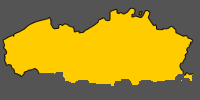
Netwerk Rechtvaardigheid & Vrede (Justice & Peace Network)
| Visiting Address: | Huidevettersstraat 165 1000 Brussel Belgium | |
| Mailing Address: | Huidevettersstraat 165 1000 Brussel Belgium | |
| Phone number: | 0032 – 2 – 213 04 00 | |
| Telefax: | 0032 – 2 – 502 81 01 | |
| E-Mail: | nrv@netrv.be | |
| Homepage: | www.netrv.be | |
| President: | Johan Verstraeten; appointed by the board of trustees of NRV for four years; election time from 03/06/2019. | |
| Secretary-General: | Staf Peeters, appointed by the board of trustees of NRV; not elected; started to work as coordinator on 01/01/2019 for indefinite time. | |
| Short historical revue of the Commission Shortly after the Second Vatican Council, in 1967, Pope Paul VI called for the establishment of commissions “Justitia et Pax” for the promotion of justice and peace, in every part of the world. The Belgian Bishops took up that appeal and the “Commissie Rechtvaardigheid & Vrede” was born. In 1974 the commission separated into a French- and Flemish speaking organisation. Since 2004 this commission operates as a network of solidarity organisations. All solidarity organisations are linked with the Catholic Church in Flanders: Broederlijk Delen, Caritas International, Caritas Vlaanderen, Present, Missio, ORBIT, Pax Christi Vlaanderen, Welzijnsschakels en Welzijnszorg. There is one joined member: Studio Globo is an NGO for development cooperation, specialised in development education. The Social Teaching of the Church, liberation theologies and the encyclicals Laudato Si’ and Fratelli Tutti are among the main theoretical and theological frameworks to underpin the different social and ecological actions of the Network. | ||
| Work priorities: | • “Caring for a Diaconal Church” focuses on the further development of a Diaconal Church in our society.
Starting point is the insight and conviction that diaconal service in itself is religious action. Questions as how can ‘societal improvement’ contribute to people living a good life together?, Where do we find these practices in our local context?, or What kind of economic and social policies support solidarity? are in the picture. “Caring for a Diaconal Church” also ensures the link with diaconal initiatives in the different Flemish dioceses. • “Eco-Church” focuses on the work concerning the ‘care for our common home’. “Ecokerk” develops several activities in order to link spirituality and ecology, and to let them result in eco-practice, such as for example creating an ‘ecological footprint’ for church buildings, activities and households. “Ecokerk” also persists– together with catholic networks and the wider climate movements – to participate in the public debate and keeps pleading for an ambitious ecological transition and climate justice. | |





